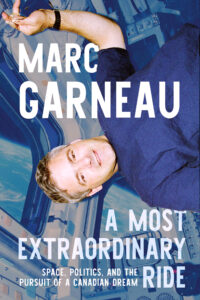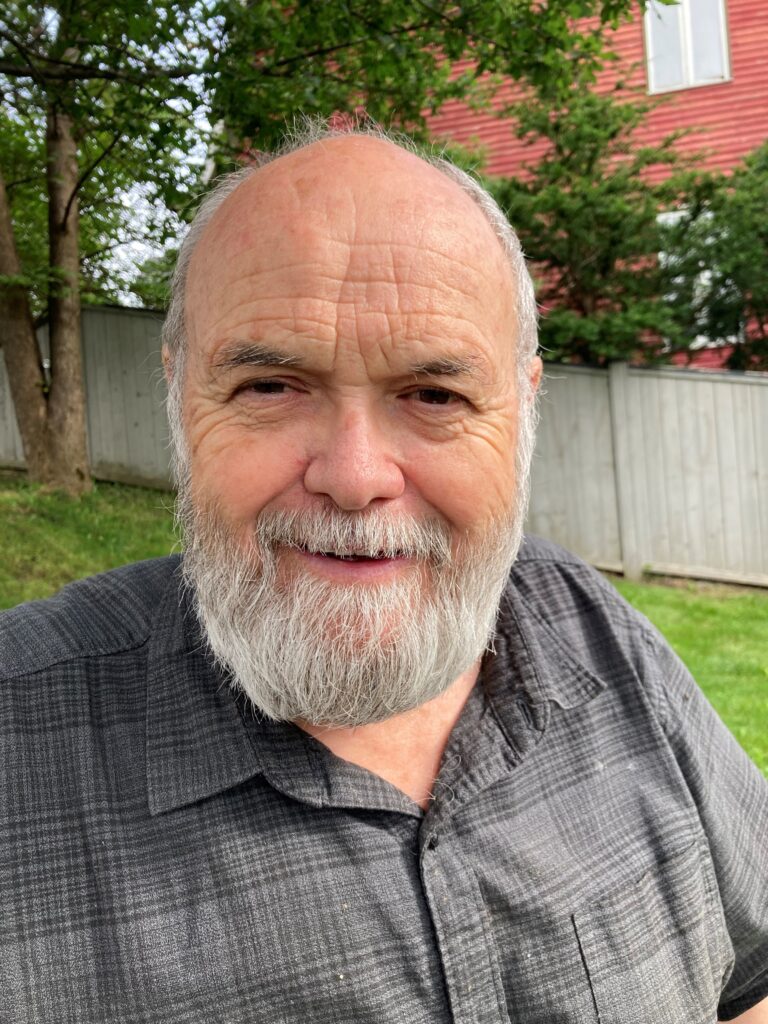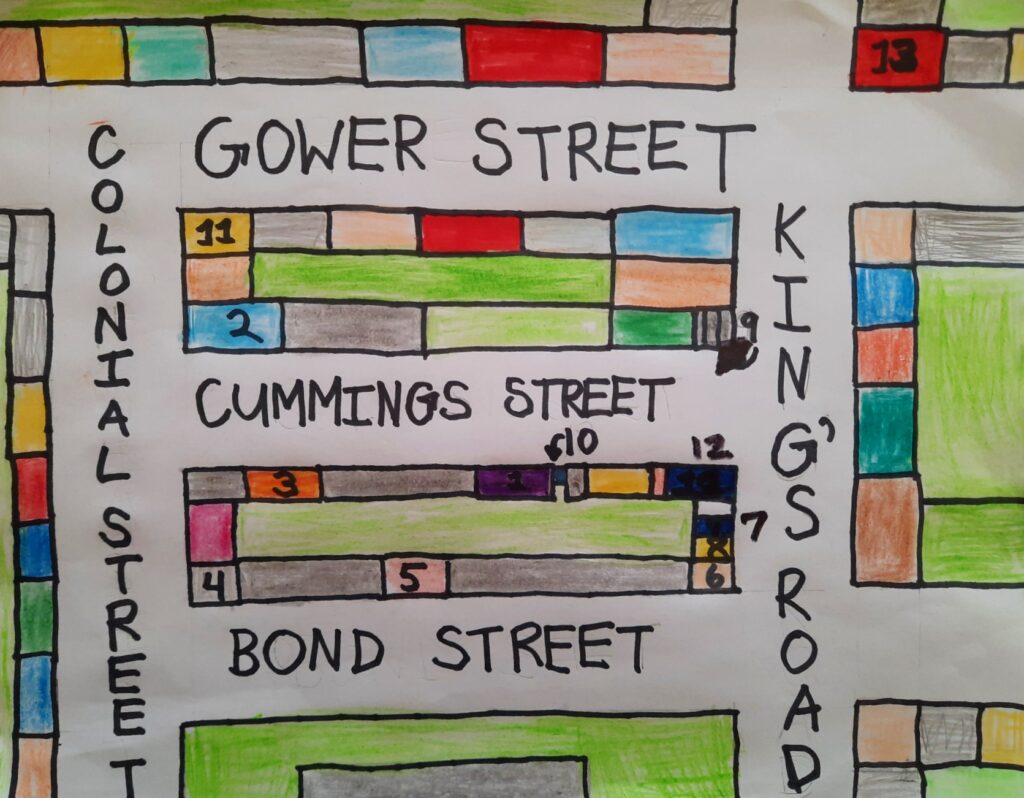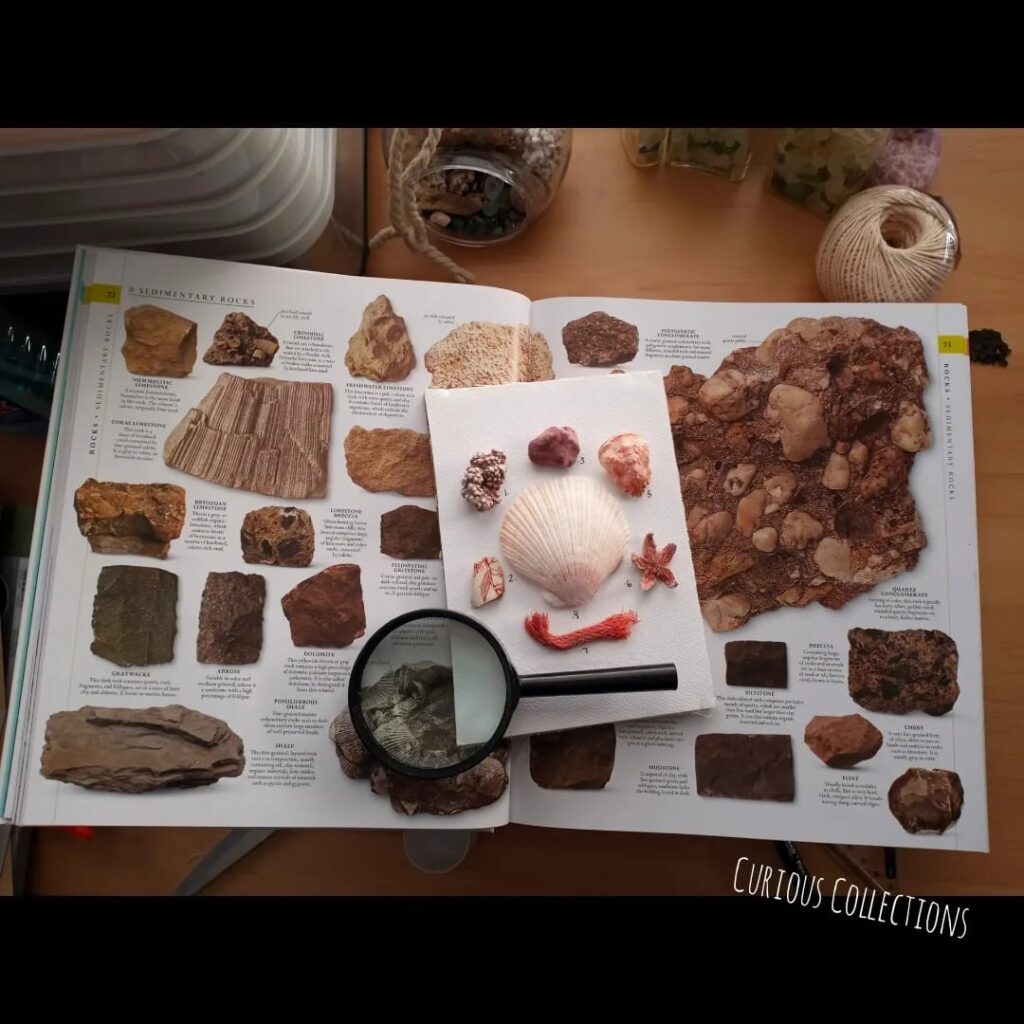“I still have a wide-eyed view of the world”: Marc Garneau, Canada’s first astronaut and retired Liberal MP on the release of his new memoir
October 2024
Congratulations on A Most Extraordinary Ride; it’s a great read. For example, in your descriptions of your three space flights, you display a knack for creating such vivid pictures that still leaves us wanting more.
Thank you. I’ve had 40 years since my first flight, and over 20 years since my last flight, to try to find the right words to describe what the experience is like. And I have to say it’s one of the most difficult things to do. I at one point came to the conclusion there are certain experiences in life that are almost beyond our ability, using words, to describe. It had been challenging. Sometimes in the course of the past 40 years, when I’ve been making presentations, I’ve felt I’ve come close to it, I usually I have slides to accompany it, which I think brings the listener or viewer closer to the experience, but it is very, very challenging to really do it justice because it is such an extraordinary and unusual experience. So I tried my best and I agonized over how to describe it.
Did you happen to see when William Shatner went up in space?
Yes I did.
I thought it was fascinating when he exited the Blue Origin and you could see him process that experience in real time.
Yes, I saw it, and it was very, very clear it had had a powerful effect on him. And in his particular case the whole experience was compressed into a very, very short time. In my particular case I can assure you I was just as starstruck by the experience of what I had lived, in my first flight, but it took me a while to find the right way to try to express t. I can remember in particular making one of my first presentations 40 years ago, and I has a NASA film with me because we recorded film of our flight and the things we do during our flight, and I was presenting that and talking to it, and after the presentation I took questions and one person said, Mark you did a very good job of explaining what you did on your flight, but you didn’t tell us what the experience was like for you personally. And then he used the sentence, and I’m quoting him directly, Marc where is your soul? And it struck me that that’s what people wanted to hear, they wanted to vicariously experience e it with me, and they needed to understand what kind of emotions and feelings I had when I was experiencing space flight. Yes, they were interested in knowing what science experiments I did, but much more than that. So I’ve been trying for 40 years to do that justice.
How do you handle the fear, or prepare to handle the fear, those moments of blasting off, you know what can happen, we’ve all seen what can happen?
I would say that to some extent the first time you do it you don’t know how you’re going to handle it. Ad I was focused in the runup to my first flight on learning what I would be doing, in other words learning the science experiments that I was going to execute while I was up there. And it was really only when I was strapped into the vehicle with the countdown proceeding and I had two and a half hours in front of me and I kind of wished we could have compressed that and gotten off really quickly. But I was left to myself for the two and a half hours, as were my fellow crewmates, and a lot of things go through your head. Suddenly you realize, well this is it, it’s no a simulation anymore, in two and a half hours we’re going to light up the solid rocket booster and the main engines and we are going to go into space. And of course that kind of endeavour carries risk with it. And so yes I had some butterflies in my stomach which I think is normal for just about any thinking human being who understands what’s involved, so I had to think to myself how badly did I want to do this? And my conclusion was, yes I am accepting some risk, I think it’s manageable risk, and the reward from this is that I will have this extraordinary experience of being, in my case I was the 150th person to go into space in all of humanity. That was just too powerful an attraction for me to allow fear to take over.
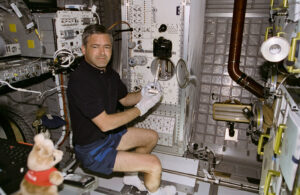
What would you say to people who argue that space exploration is too expensive?
And I have heard that argument many, many times, going back to my first flight. I can understand people saying we should spend the money on eradicating poverty or social programs of one kind or another. When you explain to people why we go to space to put spacecrafts in space they agree. Communication satellites, GPS satellites, weather satellites, those are all good things, nobody has an argument with that. When you talk about human exploration, there are some people who say well why don’t we send robots if we must explore the universe? My answer to that is, having spoken to young people for the past 40 years, is that a real human speaking to young people, and maybe not so young people, about what is it like to be an astronaut and to undertake human exploration inspires young people. As much as C3P0 and R2D2 are very cute little robots they’re not humans, and they cannot convey to people what the experience is like. Now I told you at the beginning that I still struggle to express what the experience is like, but I think I can still do a much better job than a robot could.
Do you have any concerns about the privatization of space exploration/travel?
Generally no, I think it’s a good thing because in the early days of space programs only governments invested in space. And in certain areas, the government will have to continue to invest in space because the business world will not see a business case for it and they will not venture there just out of the goodness of their hearts. There has to be a payoff for them and space is technically complex, it’s expensive. And it’s just a fact of life that businesses s will tend to gravitate where there’s a possible return o their investment. Having said that, that is now happening, and it’s happening on a pretty wide scale, and it’s a good thing because it accelerates the development of technologies that have all sorts of benefits in other ways. It’s generally a good thing. Now having said that is has to be regulated in an orderly way because going into space is a common arena for all countries going into space and we have to do it in an orderly fashion to avoid things like satellites colliding with each other.
Where would you like to see Canada positioned in terms of space exploration in five years?
We are not big enough to build our own rockets to take people into space. What we have traditionally done is work with a country like the US which has the capability to do this. We’ve been doing this as far back as my first flight and we continue to do it. A Canadian will be on a mission around the moon in 2026, his name is Jeremy Hansen and he’ll be the first non-American to orbit the moon, on this Artemis III mission. That has worked very well with us and of course we’ve had Canadian astronauts go up to the International Space Station, on both the space shuttle itself and on Soyuz rockets. We have worked with other countries that have that lifting power and I think that’s how we will continue. And I hope we will continue with the Artemis program, which is fundamentally focused on the return of humans to the moon.
Turning to your political career, the book is very detailed in the nuts-and-bolts of being a cabinet minister. What kind of contemporaneous notes did you take?
I didn’t actually keep a diary but there is every extensive official record of all of the decisions and legislations and regulations that came about during the time that I was a minister, so it’s fairly easy for me to reference those in trying to describe what I did during my time. For example as transport minister I was there for five years; we passed six pieces of legislation. So the details are there for me to refresh my mind. I didn’t need to keep a day-to-day account of it. That helped me to reconstruct it for the purposes of the book. Now I had to organize it. I spoke about my four big priorities as transport minister: Build our infrastructure, increase safety, reduce greenhouse gasses and listen to Indigenous Peoples. I tried to lay that out in a logical fashion.
Between your stints in Transportation and then Foreign Affairs, there were so many incidents/crisis you had to deal with, is there one that really stands out?
There were several really challenging things. One was the two Michaels being detained in China, another one was the downing of Ukraine International Flight PS752 when the Iranians shot it down flying out of Tehran, and 55 Canadians were on board, I would say the debacle in Afghanistan in the summer of 2021 that was a major issue because it all happened very, very quickly and of course you’re scrambling to try and get as many people out as possible, both Canadians and Afghans who had worked with Canadians. Those are definitely big moments during my tenure but there many, many others, like for example the COVID pandemic when we started off not knowing anything about it, and from a transport point of view I had to do a couple of things; one was put measures in place for the few airlines that were continuing to have a few flights and trains that were operating trying to find a way that neither airplanes nor trains would become incubators for COVID, so safety measures associated with travel; and also, at the same time, trying to make sure that our transportation systems continued to work so that we could still have trucks crossing the border into the US and ships leaving our ports so that we could continue to take care of the economy, because transportation is critical to that.
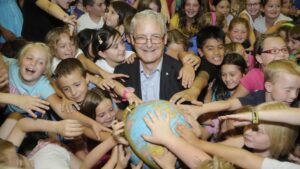
Considering what social media is like today, would you run for politics now?
You have to have a thick skin to be a politician. I like to tell people that when I was an astronaut everybody liked me. When you become a politician people feel entitled to tell you what they think. And that’s ok, that’s what you’re there for. You hope it doesn’t get personal, unfortunately, it does get personal sometimes, rarely, but social media has definitely exasperated that. If you haven’t got a thick skin you shouldn’t look at social media because there’s some pretty nasty things said about politicians.
Speaking sharing personal information, you speak quite frankly about your first marriage, and the death of your first wife. Did you have to think about that, or was that always part of your story and you were just going to tell it?
I had to think about it, and more to the point had to think about how I was going to express it, and how I was going to describe that part of my life. Which was really on a personal level the most difficult time of my life. And I decided in the end I was writing this book which was a memoir and that it was important for me to not be selective about talking about my life because life for anybody is sometimes filled with sometimes tragedy, sometimes mistakes that they make, and sometimes good things that happened to them. But I thought it was important for me to keep it real to include all of those things.
Looking broadly at the book, is there one lesson might not be the word but one bit of advice or example you would like readers to take from your life story?
Yes, because I originally wrote it for my children. What I wanted them to see was there may be a public perception that I’ve had this charmed career with all sorts of successful things happening to me, but that really I’m no different from a lot of other people who’ve had some setbacks in their life, some personal tragedy, that I made stupid mistakes when I was young, but learned from those mistakes, fortunately was guided by good parents, and that life isn’t over when you screw up once or twice or even three times, you can still have a very, very wonderful life if you learn from the mistakes that you’ve made and the failures that occur in your life. I wanted to get that message across. When I get interviewed people tend to focus on my space career and my political career, but I think they need to look at the whole thing.
My last question is can someone who’s had your career possibly have a bucket list? Is there something you still haven’t done that you’d like to do?
(laughs) I’m still as curious as ever about life, and I’m still as adventurous as I was. I will not come out of retirement, I’ll say that. But I still have a wide-eyed view of the world, I’m still an optimist, and I still enjoy life tremendously. My bucket list is smaller: some travel, turning into a decent cook, doing a few things that are helpful in society, in other words giving back, those kinds of things, but mostly I want my life to be centred around my family now.
(Next week we’ll post a review of Garneau’s A Most Extraordinary Ride.)
